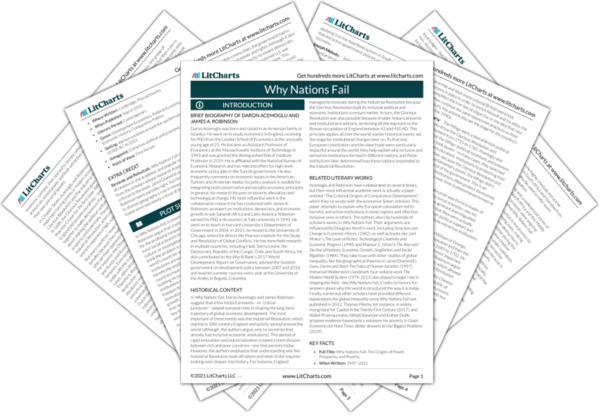The Whig Party Quotes in Why Nations Fail
The rule of law is not imaginable under absolutist political institutions. It is a creation of pluralist political institutions and of the broad coalitions that support such pluralism. It’s only when many individuals and groups have a say in decisions, and the political power to have a seat at the table, that the idea that they should all be treated fairly starts making sense. By the early eighteenth century, Britain was becoming sufficiently pluralistic, and the Whig elites would discover that, as enshrined in the notion of the rule of law, laws and institutions would constrain them, too.

Unlock explanations and citation info for this and every other Why Nations Fail quote.
Plus so much more...
Get LitCharts A+
The Whig Party Quotes in Why Nations Fail
The rule of law is not imaginable under absolutist political institutions. It is a creation of pluralist political institutions and of the broad coalitions that support such pluralism. It’s only when many individuals and groups have a say in decisions, and the political power to have a seat at the table, that the idea that they should all be treated fairly starts making sense. By the early eighteenth century, Britain was becoming sufficiently pluralistic, and the Whig elites would discover that, as enshrined in the notion of the rule of law, laws and institutions would constrain them, too.

Unlock explanations and citation info for this and every other Why Nations Fail quote.
Plus so much more...
Get LitCharts A+








